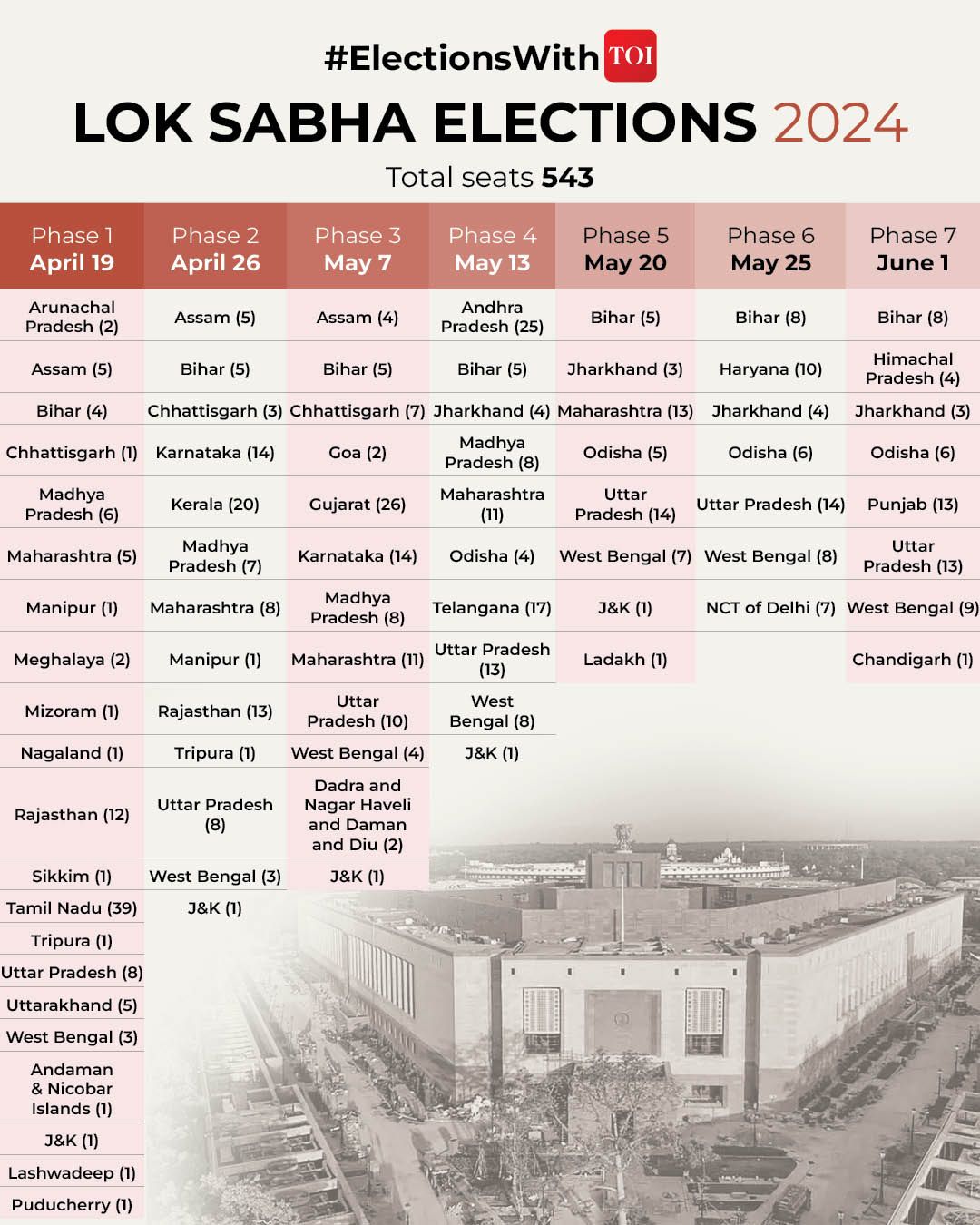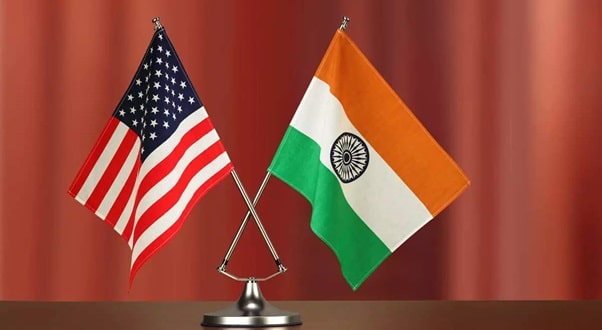The Election Commission of India has declared the schedule for the eagerly awaited 2024 Lok Sabha elections, set to commence on April 19 and conclude in seven phases by June 1, with the counting of votes on June 4. This systematic approach ensures a smooth and efficient electoral process across India’s vast and diverse geography. The detailed schedule for the phases is as follows:
Lok Sabha Elections 2024 Phases:
- Phase 1: April 19
- Phase 2: April 26
- Phase 3: May 7
- Phase 4: May 13
- Phase 5: May 20
- Phase 6: May 25
- Phase 7: June 1

Assembly Elections Dates and States
7 phase voting will be held in UP,Bihar and West Bengal.
(19th April, 26th April, 7th May, 13th May, 20th May, 25th May, and 1st June)
5 phase voting in Maharashtra, And Jammu Kashmir
Date 19th April, 26th April, 7th May, 13th May,20th May)
4 phase voting will be held in Odisha, MP and Jharkhand
Odisha and Jharkhand
Date- 13th May, 20th May, 25th May, 1st June
MP 19th April, 26th April,7th May,13th May)
3 phase voting will be held in
Chhattisgarh and Assam (19th April, 26th April, 7th May)
2 phase voting will be held in
Karnataka (26 th April, 7th May)
Rajasthan, Tripura, Manipur (19th April, 26th April)
Arunachal Pradesh: Polling in the state would coincide with the first phase of Lok Sabha elections on April 19. The counting of votes in all the states will be conducted on June 4.
It will be single phase voting with other states like Andhra Pradesh, Chandigarh, Delhi, Goa, Gujarat, Himachal Pradesh, Haryana, Kerala, Laskhdweep, Ladakh, Mizoram, Meghalaya, Nagaland, Puducherry, Sikkim, Tamil Nadu, Punjab, Telangana, Uttarakhand, Andaman and Nicobar Island, DDNH.
Model Code of Conduct Comes into Immediate Effect
The model code of conduct, now in effect with the announcement of the election dates, is a regulating tool for political parties and candidates to compete fairly. The code is one of the essential parts of maintaining the integrity and fairness involved in the electoral procedure.
Emphasis on Inclusivity and Security
The Election Commission ensures the entitlement of every qualified voter to an environment where he or she may be free from coercion and any other dubious motives cast his or her vote. Special provisions have also been made for the voters from the conflict-ridden areas to senior citizens and physically challenged ones. Very well, the scope and functioning of the commission lie in the inclusive electoral process.
Preparations and Security for Voting
For this, special arrangements have been made at polling stations, including the provision of drinking water and sanitation facilities. Voting facilities for old and disabled persons have also been facilitated. Strict arrangements are also placed to avoid anything like electoral violence, thus making the election peaceful and sound.
Voting in the Digital Age
The Election Commission has taken several measures to make the process of voting easy in this digital age. They have provided facilities to voters online, and awareness through the social media platform is being spread with all-out efforts to involve young voters effectively in the process.
The Role of Citizens
The Election Commission has made provisions for the lodging of all election-related complaints by the voters through the C-vigil app to enable the voters to have a method easily available for lodging their complaints, which has made the whole election process transparent and fair.
Thus, the Lok Sabha elections 2024 are set not only to strengthen India’s democratic framework but also to offer the country’s citizens an opportunity to understand and fulfil their rights and duties. These elections will not just select a new government but will also symbolize the strength and diversity of Indian democracy.

